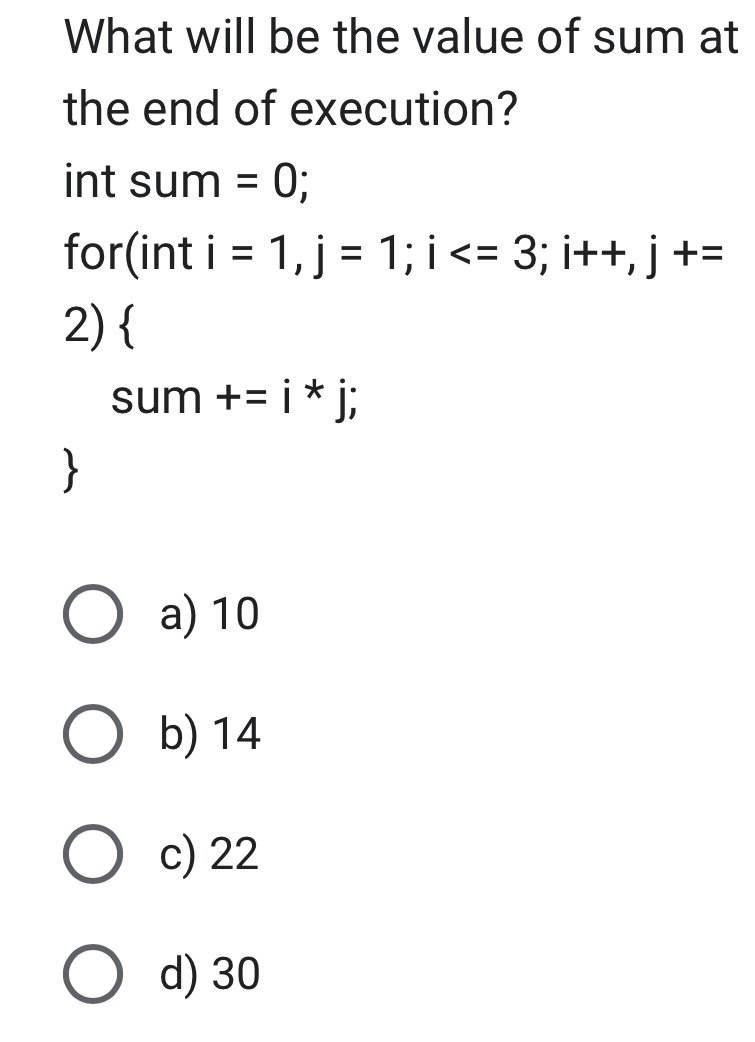What will be the value of sum at the end of execution? int sum = 0; for(int i = 1, j = 1; i <= 3; i++, j += 2) { sum += i * j; }

Understand the Problem
The question asks for the final value of the variable 'sum' after executing the given code snippet. The code involves a loop that calculates the product of 'i' and 'j' and adds it to 'sum' based on specific increments of 'i' and 'j'. We need to analyze how the loop executes and compute the value accordingly.
Answer
$22$
Answer for screen readers
The final value of sum is $22$.
Steps to Solve
-
Initialize Variables First, we have
sum = 0,i = 1, andj = 1. -
First Iteration (i = 1, j = 1) We calculate: $$ sum += i * j $$ Plugging in values: $$ sum += 1 * 1 = 0 + 1 = 1 $$
-
Increment j After the first iteration, increment
jby 2: $$ j = 1 + 2 = 3 $$ -
Second Iteration (i = 2, j = 3) We calculate: $$ sum += i * j $$ Plugging in values: $$ sum += 2 * 3 = 1 + 6 = 7 $$
-
Increment j After the second iteration, increment
jby 2: $$ j = 3 + 2 = 5 $$ -
Third Iteration (i = 3, j = 5) We calculate: $$ sum += i * j $$ Plugging in values: $$ sum += 3 * 5 = 7 + 15 = 22 $$
-
End of Loop The loop terminates after
iexceeds 3.
The final value of sum is $22$.
More Information
The code evaluates the product of i and j during each iteration and aggregates the result into sum. The increments of j make each loop yield different contributions to the final sum.
Tips
- Forgetting to update the variable
jcan lead to incorrect sum calculations. - Misreading the loop boundary condition, leading to premature termination of the loop.
AI-generated content may contain errors. Please verify critical information